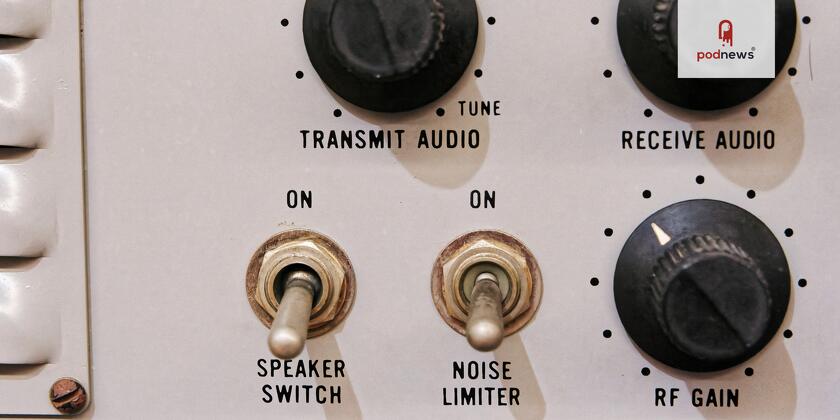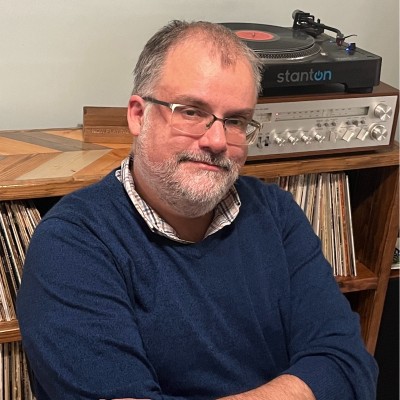
The Battle Cry of the Lazy Luddite

Last week, as reported in Podnews, The Hollywood Reporter published an article about a new podcasting company. It’s safe to say that this caught people’s attention. While a few notes of congratulation flickered here and there around the podcast community, the vast majority of responses to the announcement of this new enterprise – called Inception Point AI and co-founded by Jeanine Wright, the former COO of Wondery – were somewhere on the spectrum of disbelief, shock, revulsion, and horror.
The many LinkedIn posts that flew through my feed about it said things like “deranged and despicable”, “just horrifying”, and “so bad, and so triggering, that it’s taken me a day to process it”. I must confess, dear reader, that immediately upon reading the article I shot off a late-night screed where I called the founders “monsters” who “should be ashamed of themselves”. This is not the kind of language I usually use in professional situations, but at least I was not alone in my hot-blooded reaction.
To summarize, for those of you who may have missed it, this new venture promises to revolutionize podcast production by almost completely removing human beings from the process. They propose to generate hundreds of different AI avatars who will create and release their own podcasts, without any human editing or oversight. By eliminating such obstacles as “people thinking and doing things”, they claim to be ready to unleash these totally machine-made series at an enormous scale – thousands and thousands every week – and at the cost of only around $1 per episode. Because of this shockingly low overhead, these shows need very little actual listenership in order to be economically viable. Even if only a handful of people consume each episode, so long as they can find someone willing to pay $10 to advertise to that handful they’ve made a net profit of 900%. Do that thousands of times per week, and you have a multi-million dollar company with profit margins that would make any banker do a spit take.
Of course, this is the ultimate volume play, absolute quantity over quality. Who cares if any single show is any good? Who cares if dozens or even hundreds of them are complete gibberish? There’s always another and another and another and another. As Nick Quah said in his article in Vulture about the announcement, this is “the voice of pure capital… only concerned with the crudest metrics of value.”
I’ll add that it is also the voice of a bizarre strain of apocalyptic technofuturism, with Wright attempting to ethically justify the scheme by saying “We believe that in the near future half the people on the planet will be AI, and we are the company that’s bringing those people to life”, as if she were giving voice to an oppressed minority rather than building computer programs intended to replace the jobs of human hosts, producers, writers, and engineers. To add insult to injury, Wright also breezily dismissed any of those creators who don’t immediately care to hand over their vocations to her software as “probably lazy luddites”.
Unsurprisingly, this last statement made the largest impression on the field. Aside from the absolute bizzaro assertion that taking the time to write and record things is somehow more lazy than just pushing a button and having it done automatically… “luddites”? Really? We’re in digital media here, not tallow candlemaking. As for myself, I’ll see your “lazy luddites” and raise you a “‘misguided moneygrubber”. Misguided because your model cannot be sustained, no matter how small your COGS and how vast your margins. You are bound to fail because you don’t understand the needs of your customers.
People don’t listen to podcasts because they need to fill a block of time with sound, and any sound will do. They listen because they want to be educated, entertained, or inspired in a way that can only come from the connection of human minds at a distance. This is the ultimate purpose of all media, and all art. Someone thinks a thought, then expresses that thought as well and beautifully as they are able, then someone else in a different place, in a different time, can experience that thought, and let it create new thoughts inside of them that they in turn can work to express.
Even when an advertisement is attached, or when they know that they are consuming branded content, people tolerate the promotion because they crave the connection. Your phone, in the end, is what the radio and the television are – a remedy for loneliness. They are ways to bring new people – interesting people that you enjoy spending time with – into your life and your home. Nothing is lonelier than realizing those people were not people after all, or even worse, just more pieces of software that exist only to feed you advertising. Without being driven by human expression, anything produced is a medium without a message, an empty pizza box in place of a meal. You have successfully delivered something of the correct size and shape, but no nourishment can be taken from it.
And what happens to a medium when people have a hard time finding value in it? The audience vanishes. Despite the best assurances of every AI content creation startup, people will not continue to consume any pieces of media you shove at them. You can score some very short-term wins by flooding the market with garbage — people will watch or listen to low-quality things once or twice because they stumble upon them, but they will not keep returning. To build an audience and hold it you must consider their needs and provide them with something truly worthwhile. The joy of a podcast is in listening to a human voice, and hearing what it has to say. Remove that, and there’s nothing left.


































































































